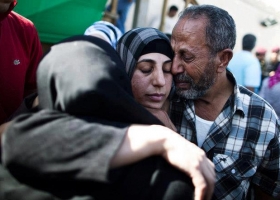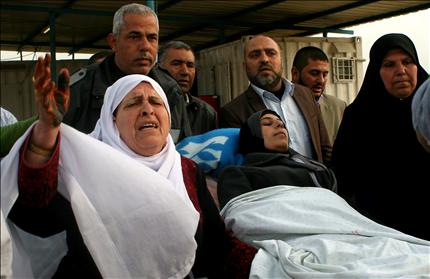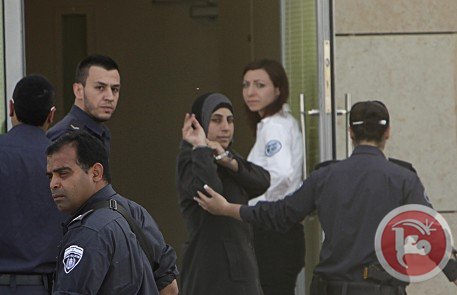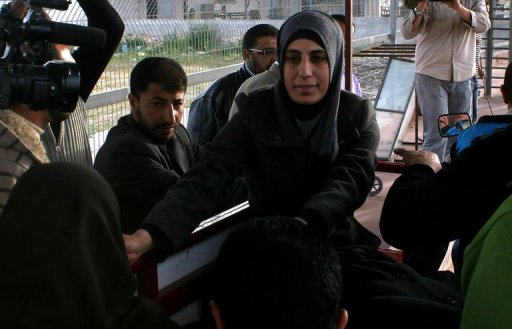After 43 days of hunger strike, Hana Shalabi was finally freed when the Israeli occupation authorities deported her to Gaza, in a move described by the Palestinians as a “war crime” and a “crime against humanity”
 |
 |
 |
 |
 |
After 43 days of hunger strike, Hana Shalabi was finally freed when the Israeli occupation authorities deported her to Gaza, in a move described by the Palestinians as a “war crime” and a “crime against humanity”.
Shalabi confirmed that she chose deportation rather than continuing with her hunger strike in prison, because of the serious deterioration in her condition, but stressed the need to continue to support the Palestinian prisoners who are in hunger strike. She had been taken from the Ramla prison south of Tel Aviv to the Erez crossing.
The Palestinian prisoner, who was being transferred by ambulance to a local hospital for tests, said she was "very happy to be in my country with my people," but that the meeting with her family was very difficult.
In Gaza, people bearing her picture and calling out her name were waiting for her with the participation of officials from the Islamic Jihad and Hamas movements. The Islamic Jihad movement asserted its rejection to deportation policy but welcomed the arrival of Shalabi to Gaza.
The deal has been also criticized by rights groups and the Palestinian prisoners affairs ministry, which said she had been forced to accept the arrangement.
In a statement released on Sunday through her lawyer Jawad Bulus, Shalabi said:
“To my dear family and my people and all the free people in the world, I thank you for your efforts and I appreciate everything you did for me and for the prisoners. I hope that you will understand my position and my decision, which was taken freely. I chose to be transported to Gaza, which is half the homeland, and to be with my family and people there for three years. After that I will go back to my home in Jenin and to my family. I hope that my decision will be respected and that we will continue to support together those who are fighting their battles for the homeland and for the prisoners.”